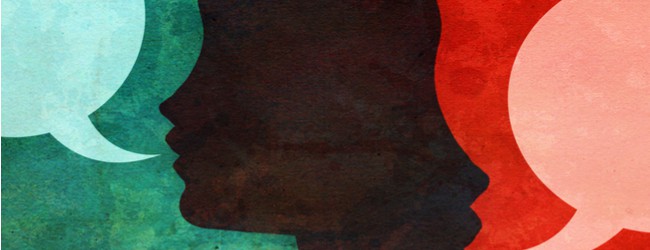I Needed My Caregiver to Keep Me Alive. She Exploited That Power.
Content note: this post discusses the concept of caregiver abuse.
I have a fear of becoming a statistic. I made it through four years of college without being 1 in 3 disabled women sexually assaulted on college campuses, a number recently reported by the National Council on Disability in their report, “Not on the Radar.” I am not a part of the 67 percent of women with disabilities who reported being physically abused, or the 53 percent of women with disabilities who reported being sexually abused. I am grateful for this, but the fact that this is even something to be grateful for makes me sick.
Sexual abuse is like any abuse in that it is an exploitation of power. And when you rely on others to literally keep you alive and assist you around the clock, the exploitation of power can be an all too common occurrence.
When I first moved away from my home and parents to attend college at the University of Iowa, I was suddenly thrown into a position of placing my trust in the hands of about eleven different female students who I hired to get me up in the morning, get me dressed, help me use the bathroom, get me to and from class, eat, and any other activities I needed assistance with throughout the day and night. This was not the first time I had hired caregivers taking care of me, but this was the first time I relied on people paid to take care of me 24/7.
Disabled writer and activist Mia Mingus talks about “forced intimacy,” the concept that those with disabilities have to bare themselves both emotionally and physically, whether they wish to or not, in order to get access to basic, quality care. The fact that I often have to get naked during a new helper’s first shift is evidence of this. It’s not something I care about one way or the other – it’s just the reality of relying on others to help you use the bathroom, shower, and get dressed. Still, to say such instances make me hyper aware of my unique position and vulnerability is an understatement.
Over the course of my year, I began to dread the times when one of my helpers worked. She acted like everything I asked her to do was a burden, and when I would confront her about slacking on some things or the general feeling of discomfort, she would tell me that I expected too much from my helpers. The power dynamic of a situation can vary based on context. I don’t know what a similar situation would look like between two employees in a general workspace, but I do know it wouldn’t have as high of stakes as this same interaction between someone who depends on another to physically care for them and the one who is being paid to do so.
I never feared for my physical safety, which, when looked at in the scope of national statistics, I suppose I am reminded to be thankful for. But I did fear speaking up about being made to feel belittled and ungrateful, because I knew that realistically, I had to keep her on as a helper for the rest of the year, as no one else could fill her shifts. This same helper was also employed by my neighbor and had once refused to help this student use the bathroom. When I brought this to the attention of the agency, they did nothing. I don’t think I ever consciously feared her doing the same thing to me, but deep down, I knew that I had to be careful not to upset the already skewed balance of power between us.
I came up with all sorts of reasons to stay in this situation that made me miserable. Some of these reasons, like the fact that I relied on this person to get out of bed in the morning, made sense. Other reasons, like the internalized belief I should be grateful for whatever sort of care I’m receiving, are lies that wriggle their way into a person’s head whenever you start to doubt yourself and believe what the person you’re relying on is telling you. This is the fault of a society that for so long has not honored bodily autonomy or choice, especially when it comes to disabled women.
Telling this helper I would not be hiring her back the following year was one of the most difficult things I have ever had to do. The first conversation did not go well. She reiterated that I expected too much from my helpers, and warned me against burning bridges. I was on the verge of tears the entire time, and by the end of her shift that night, believed her. I told her she could continue to work next year, but fewer hours. She agreed. But after seeking advice from another helper and friend, I knew I had to tell this helper that I had decided her working with me the following year was a bad idea. The entire afternoon beforehand I felt sick to my stomach and broke down multiple times. I was terrified of how she would react, but I knew it had to be done.
My experiences of being in positions where I was taken advantage of are not the same as experiences of sexual assault or abuse. #MeToo does not belong to me. But sexual assault, sexual abuse, sexual harassment – these all are instances of feeling entitled to something that does not belong to you, instances of taking advantage, instances of using your power to hurt someone else.
As a woman with a physical disability, the concept of consent holds added power to me because of the seemingly small amount of control I have over my body in the first place. It’s not something I take lightly, and it’s not something I see as relating to solely sexual acts. At the core of consent is respect for another person and respect of that person’s ability and right to make their own choices about their bodies and their lives. Consent is a particularly loaded concept in the context of forced intimacy, when there are certain things that disabled people must consent to in order to stay alive. It is a particularly dangerous evil when someone knows this truth and takes advantage of it, pushing people with disabilities to endure toxic behavior because they rely on this person to take care of them.
This pattern isn’t unique to disabled individuals and their caregivers – in fact, it’s a common theme in abusive relationships of any kind, usually one of the main reasons those who are being mistreated feel threatened to stay in the situation. It’s a veiled threat, much like the threat of not being believed if reporting an instance of assault.
This is the thing that so many people seemingly fail to realize about the #MeToo movement: instances of rape do not exist in a vacuum. Yes, it is absolutely necessary to acknowledge different degrees of harm, but it is also necessary to recognize that any level of harm is still harm. Underscoring all instances of sexual assault is a disrespect and disregard of another person’s bodily autonomy. Someone does not sexually assault or abuse another person without first believing it is okay to disrespect and hurt them, or perhaps believing that what they are doing is not harmful or disrespectful at all. And someone does not hold these beliefs without having these attitudes reinforced by society.
As a disabled woman who has been in situations of power abuse, I think we should listen to disabled people’s stories about bodily autonomy and choice. I think we should respect boundaries put in place not just by those of us who have less of a semblance of control over our bodies than others, but by everyone. I think we should be aware of the power dynamics we are bringing to our relationships and be conscious of the privilege our power affords us, and when we’re abusing that power.
These are real peoples’ lives, real peoples’ bodies, real peoples’ hurt. This is so much larger than saying it’s not okay to rape someone. Above all, I think we must be willing to look at our behavior and ask ourselves what we have done to feed rape culture, and what we have done to combat it. We must be willing to actually listen when someone calls us out on problematic comments or behavior, and we must be willing to fix it.
About Rooted In Rights
Rooted in Rights exists to amplify the perspectives of the disability community. Blog posts and storyteller videos that we publish and content we re-share on social media do not necessarily reflect the opinions or values of Rooted in Rights nor indicate an endorsement of a program or service by Rooted in Rights. We respect and aim to reflect the diversity of opinions and experiences of the disability community. Rooted in Rights seeks to highlight discussions, not direct them. Learn more about Rooted In Rights




The definition of criminal assault and battery includes “a physical act that results in offensive bodily contact without the victim’s consent.” About half of my caregivers have committed this crime.
The difficult thing is that I have to consent and even request some very intimate contact with my caregivers. But that never ever means that they may do more than I have consented to. Or touch me in any way that I have not given permission for someone to do. Or even worse, touch me in a way that I have expressly forbidden them to do. (It was never sexual or physically harmful, but it was something that I did not want, need, ask for, and had often even told them specifically not to do and that is still a crime.) These acts are not accidents by my caregivers. Every single one that has violated my bodily autonomy and choice has said: “I know I wasn’t supposed to do that, but it had to be done (it didn’t)” or the even more ubiquitous to this issue, “I know you don’t like that, but I couldn’t help myself.”
“I know that wasn’t allowed.” Think about the fact that someone said that and thought they had an excuse for doing it anyway. Thought that merely, “I couldn’t help myself” was actually a reasonable excuse for a sane adult to use when violating someone’s autonomy and choice.
That’s a phrase ubiquitous to the experience of sexual assault, and it makes me sick to hear it used so casually, as though it weren’t part and parcel of rape culture, as though they weren’t participating in a systemic problem in which society feels that people’s bodies belong to society, disabled or not.
It doesn’t matter how I was touched or how harmless it may seem to you or someone else. It doesn’t even matter that I did say the magic word “no,” flinched, pulled away, pushed the person away, in other words, fought back. What matters is that I did not consent.
I would Expand on Shayla’s post, BATTERY is where physical contact is made, ASSAULT doesn’t need Body contact through both often go hand in hand, in the case where Hannah expressed fear in firing the caregiver who was in my view being abusive it could be contended an assault occurred.